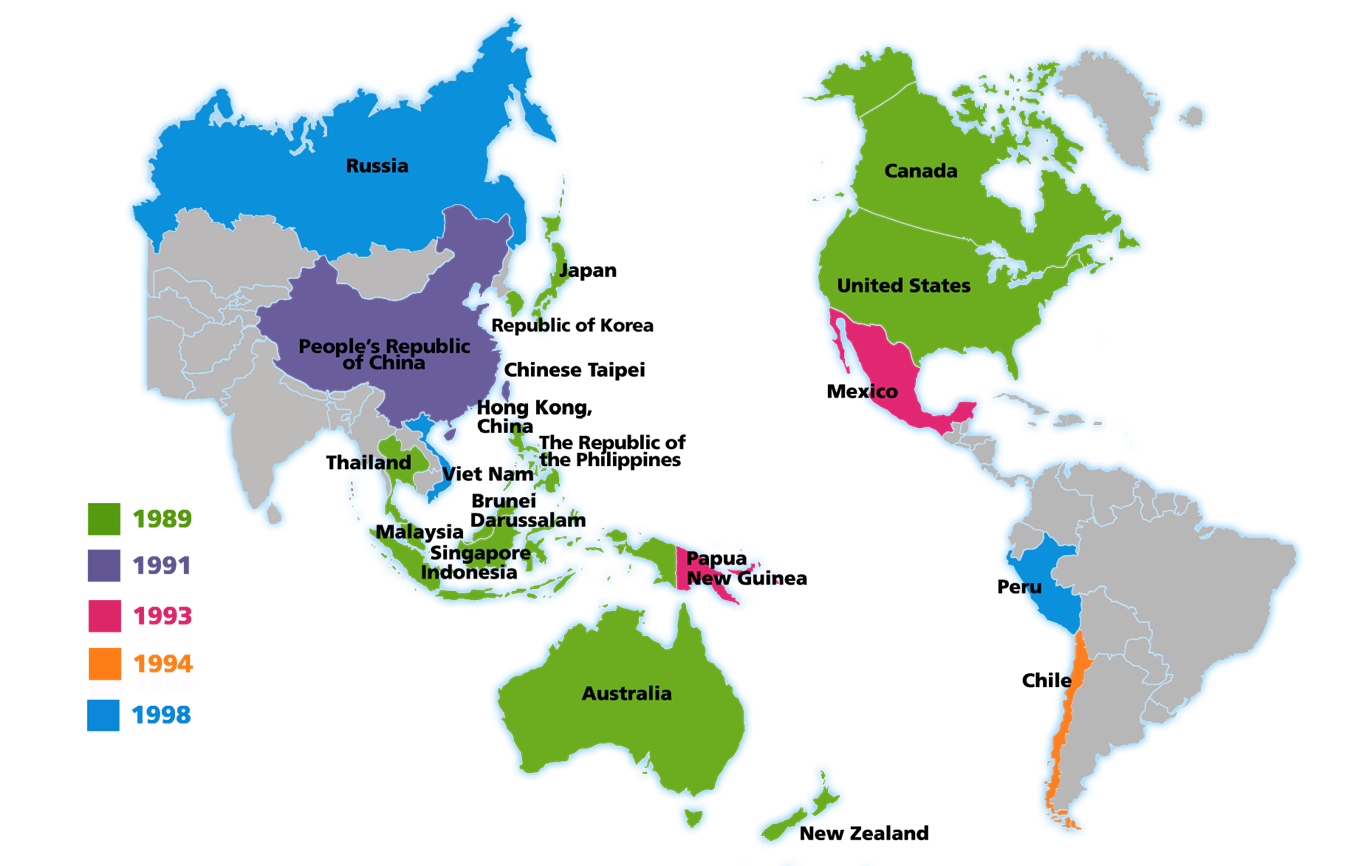Government officials will never ask you to transfer money or disclose bank log-in details over a phone call.
Call the 24/7 ScamShield Helpline at 1799 if you are unsure if something is a scam.
APEC's member economies are home to 38% of the world’s population and account for 62% of the world’s gross domestic product (GDP) in 2022. Over the last three decades, APEC’s real GDP growth rates have generally outpaced global averages.
Since its inception in 1989, trade in goods and services between APEC economies have more than tripled. From 1989 to 2023, the total value of APEC merchandise exports grew from USD $1.2 trillion to USD $11.7 trillion while the total value of imports increased by more than seven times, from USD $1.3 trillion to USD $11.8 trillion, amounting to around half the world’s merchandise exports and imports. A similar increasing trend is also seen in intra-APEC exports which has increased almost eight-fold from 1989 to 2021, from USD $0.9 trillion to USD $6.8 trillion. In 2022, APEC’s trade in goods and commercial services reached a total value of USD $30 trillion, amounting to 47% of global trade.

APEC operates on the basis of open dialogue and aims to strengthen regional economic integration by:
· facilitating trade and investment "across the border";
· removing supply chain chokepoints “at the border”; and
· improving business climates "behind the border".
The focus of APEC’s work is connecting and integrating economies within the region so as to facilitate the ease of doing business within and between them. APEC leaders, ministers, senior officials and business representatives meet regularly to take the APEC agenda forward. APEC decisions are reached by consensus, and commitments are made on a voluntary basis.
APEC supports the work of other international organisations such as the WTO. APEC recognises that the ability of its members to implement WTO agreements directly affects the capability to meet APEC’s main goal of free and open trade and investment in the Asia-Pacific. APEC is therefore actively pursuing WTO capacity building projects and initiatives to meet these objectives.
APEC economies account for over 78% of Singapore’s global trade in goods and services. Singapore participates actively in APEC with a view to deepen economic integration in the region and strengthen economic linkages with individual APEC economies. APEC also serves as a useful platform to share experiences and best practices as well as incubate fresh ideas and approaches on a variety of topics. Singapore is supportive of APEC’s wide-ranging agenda, including areas such as trade facilitation, supply chain connectivity, digital economy, food security and green economy, among others.
In 2009, Singapore chaired APEC under the theme of “Sustaining Growth, Connecting the Region”. Our chairmanship focused on recovering from the Great Financial Crisis by supporting the WTO, accelerating regional economic integration and strengthening the APEC institution.
Peru is Chair of APEC 2024 and its Chairmanship theme is “Empower. Include. Grow.” In line with the Putrajaya Vision 2040, Aotearoa Plan of Action and Bangkok Goals on Bio-Circular-Green Economy, Peru’s three pillars are:
1. Trade and Investment for Inclusive and Interconnected Growth
2. Innovation and Digitalisation to Promote the Transition to the Formal and Global Economy
3. Sustainable Growth for Resilient Development